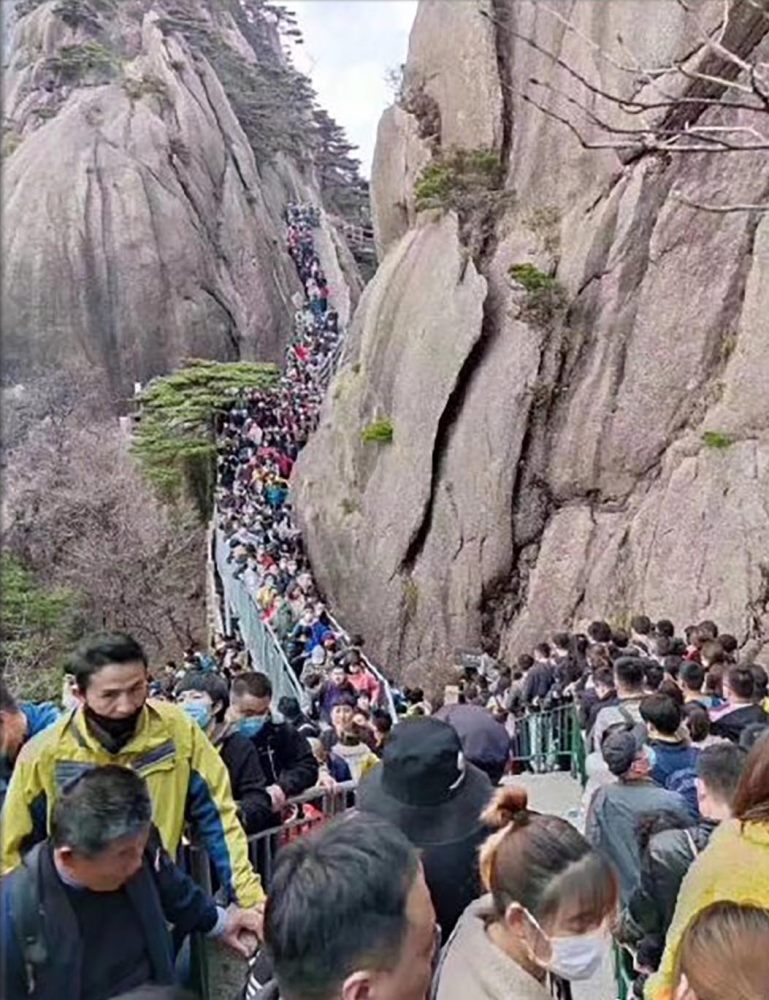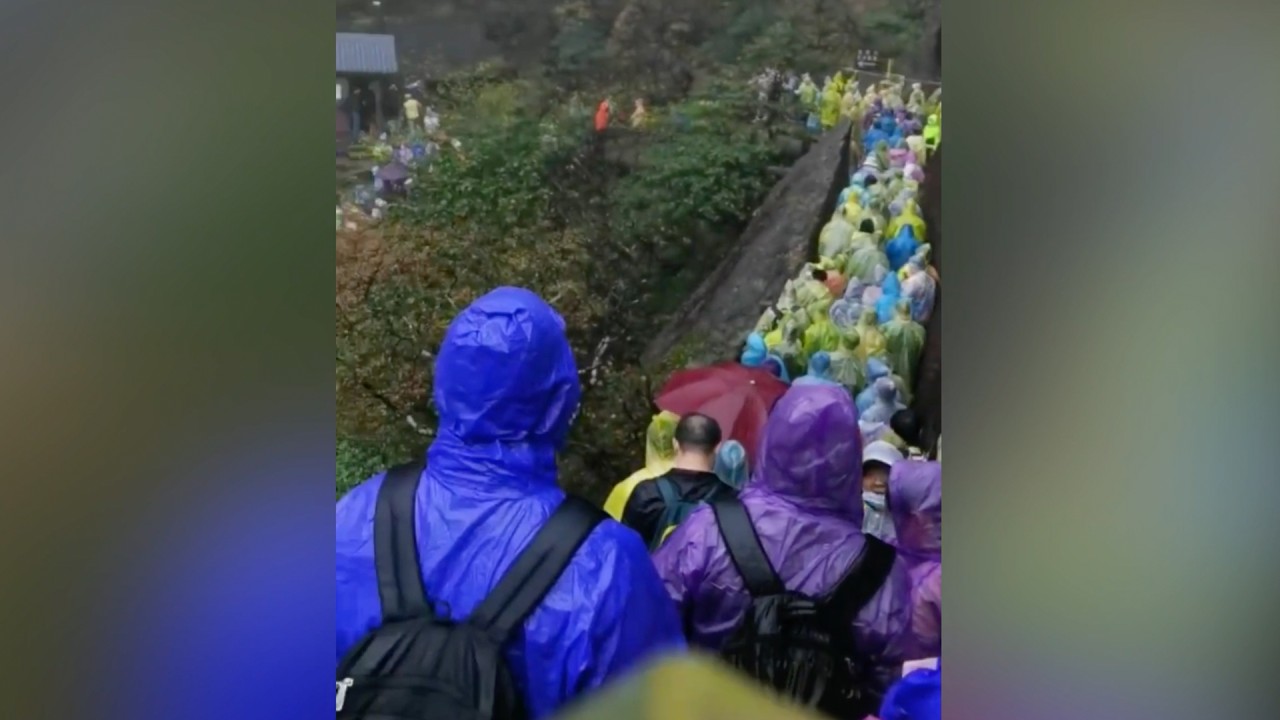
Iconic Chinese scenic park wants people to pay for their own rescue in an emergency
- At the Yellow Mountains, about 300 search and rescue operations are launched a year, causing a financial strain
- But some people worry travellers may get into serious trouble because they do not want to pay the bill
People who are seeking a little adventure in one of China’s hottest tourist destinations may soon have to foot the bill if they get into an emergency.
The plan would “prevent travellers from entering undeveloped areas or those not open to the public” and “improve the effective use of public rescue resources”.

It also attracts people who plan reckless adventures or find themselves in over their heads in nature.
According to the directive, adventurers who call for rescue would receive a bill after the mission is completed and would be added to a blacklist if they do not pay or raise an objection within three months.
The costs would include paying for the labour of the rescuers, their accident insurance, transport and any necessary emergency treatment, it said.
Because of their recklessness or foolish errors in judgment, they demand rescue, which is paid for by taxpayers.
Staff at the scenic park conduct over 300 rescue operations each year, of which dozens are to save people who get stranded because of violating rules of the park, according to China National Radio.
The Yellow Mountains park already has regulations that charge people for search and rescue efforts, but the new rule would expand the geography of the plan.
In June 2019, a tourist got lost while travelling in an area inside the park that was closed to the public. He paid over 3,200 yuan (US$500) for his rescue, becoming the first stranded tourist to be charged.
The directive from the Huangshan city government is currently soliciting public opinion.
Similar policies have been adopted by some states in the US. Only a handful of Chinese tourist attractions have a pay-for-rescue policy.
Professor He Jianmin, from the tourism management department at the Shanghai University of Finance and Economics, said the idea could be a reasonable way to balance personal interest and public resources.
He said that, in many cases, careless adventurers are posing a danger to themselves and causing damage to society.
“Because of their recklessness or foolish errors in judgment, they demand rescue, which is paid for by taxpayers. So this is infringing other people’s interests,” he explained.
He said one solution could be to establish a public fund specifically to rescue people. The idea could reduce the financial burden from search and rescue infrastructure for popular tourist destinations.
“In the meantime, managers of scenic spots should not reduce the areas allowed to be entered due to rescue concerns,” he said.
According to an ongoing Weibo poll by China Youth Daily, a nationalistic newspaper, about 87 per cent of over 2,000 respondents said they supported the new policy, as of Thursday evening.
But other people expressed concern that the policy might cause people to compound their bad situation by taking additional risks to save themselves.
“With the new policy, there might be situations where someone is in danger, but because they do not want to pay the bill, they continue to struggle and wait until the last minute to call for help. They might lose precious time to be saved. Without a price tag for rescue, that person would have asked for help earlier,” wrote someone on Weibo.


